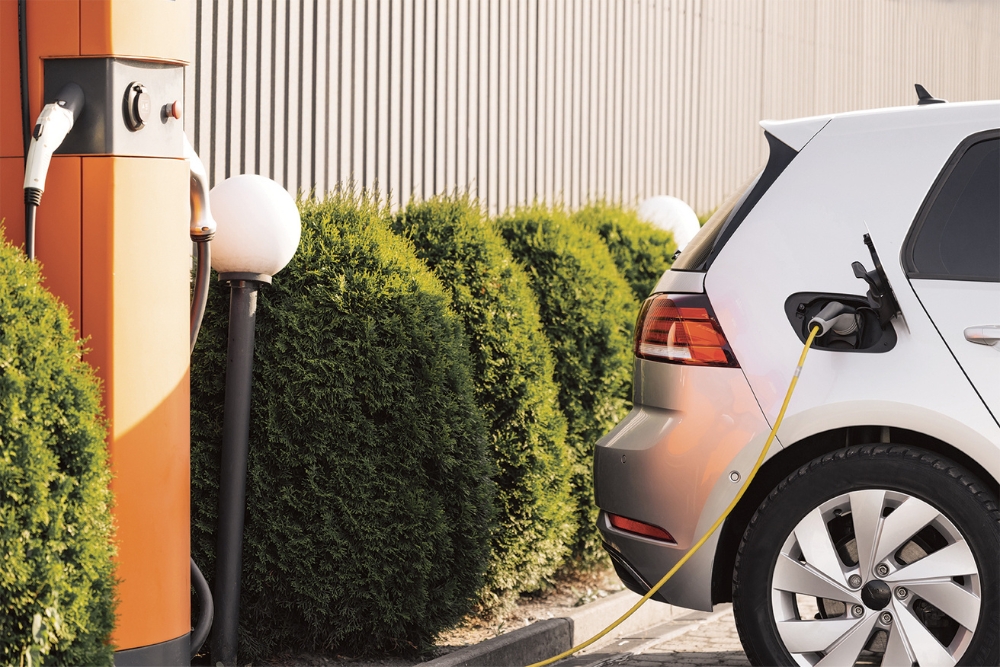Scaling your vehicle fleet as a growing business
By SG Fleet | 14 May 2025

Growth is exciting, but it can also bring a whole new set of decisions to navigate. One of the biggest? How to scale your vehicle fleet to match your business ambitions. Onboarding new team members often means more company vehicles, but jumping in too quickly (or not quickly enough) can increase your costs or give you logistical headaches.
When is the right time to scale?
There's no single formula that works for everyone. Your company is unique, so your circumstances will be too. For some businesses, demand might skyrocket almost overnight, which could push the need for more drivers and company vehicles. For others, it's a slow burn.
Usually, the tipping point is when personal car use or ad-hoc rentals stop making financial sense. If you're regularly reimbursing high mileage and seeing inconsistent vehicle quality, it's probably time to rethink how your fleet is structured.
A dedicated business car leasing arrangement is a good way to boost your consistency, improve budgeting, and scale with your headcount. The key is being proactive. If you wait until you've outgrown your current approach, then you're already playing catch-up.
Set clear fleet objectives
It might sound counterintuitive, but scaling isn't necessarily about size. The most important thing is that your fleet does what you need it to do. Try to have a results-based mindset and look past the raw numbers.
Are you aiming to reduce employee travel expenses, or is your business looking to improve its carbon footprint? Do you need to make recruitment more attractive with company car perks to onboard more staff? Is your business disparate, meaning you need to simplify travel between sites?
The answers to these will help you to figure out the type of company vehicles you choose, how many you need, and whether business car leasing is the right model. It's also a chance to look ahead. Where do you want to be in one, three, or five years? Planning now makes your future decisions much easier.
Standardise where you can
One of the most common mistakes we encounter with growing businesses is a lack of standardisation. It's easy to slip into a pattern of treating every new hire or team like a one-off, but it can lead to a mishmash of makes, models, and deals. Managing becomes much harder as a result.
If you're scaling your vehicle fleet, it pays to put some structure around it.
Industry commentators have linked smarter, more uniform processes to efficiencies. But what does this look like? Well, it might mean setting a banding system so employees choose from a defined list, or standardising providers or leasing terms. You could also think about introducing a car policy that outlines expectations and eligibility.
Doing this early makes life easier later. It gives your HR and finance teams fewer headaches, streamlines servicing and insurance, and avoids those "why did they get a better car than me?" conversations.
Admin adds up fast
With every new vehicle comes paperwork. Insurance, servicing, mileage logs, MOTs- all build quickly. And while it might feel manageable at ten cars, it gets time-consuming fast as your vehicle fleet grows.
This is where working with a fleet management specialist like SG Fleet can help. Our fleet solutions take the burden of admin off your shoulders, and they're crafted to your specific needs. Leave the paperwork to us, and get back to the day-to-day running of your business.

Go greener (and smarter)
A growing fleet is a great opportunity to future-proof your business. Low-emission and electric vehicles can cut fuel costs, and align with sustainability goals. Pressure to do this is increasing from both customers and supply chains, and more businesses are looking to demonstrate environmental credentials. Fleet decisions play a big part in that.
Transitioning to electric needs a plan.
That's exactly what our double-award-winning eStart solution delivers. It's a full EV fleet management strategy that's built to help you make the move to zero-emission vehicles with confidence. We help you to set goals, assess your current vehicle fleet, and walk you through every step.
It's tailored to your usage patterns, lease timelines, and site setup, so you're not wasting any time or money on guesswork either!

Ready to grow your vehicle fleet with confidence?
At SG Fleet, helping growing businesses take control of their company vehicles is what makes us tick. Our business car leasing solutions are built to scale alongside you and take away your admin headache, offering flexibility, cost certainty, and expert support at every stage.
Whether you're adding your fifth car or your fiftieth, we'll work with you to tailor a fleet strategy that fits.
Find out more about our fleet management solutions or get in touch with any questions. We're here to help your business go further.
FAQ
How many cars do I need before it's considered a fleet?
There's no official minimum, but many providers define a fleet as three or more vehicles. Even if you've only got a few cars, it's worth treating them like a fleet to stay organised.
Is leasing a car better than buying for small businesses?
Generally speaking, leasing offers predictable costs, avoids large upfront payments, and makes it easier to upgrade. It also reduces your admin burden and can keep your cash flow healthy.
Can electric cars be leased by businesses?
Yes. At SG Fleet, we specialise in helping you transition to electric vehicles; they can be a great option for reducing running costs and cutting emissions.
What happens if an employee leaves but still has a company car?
This depends on your internal policies and the leasing agreement. Some providers offer flexible terms to account for staff changes.
Are company cars a taxable benefit?
Yes. Company cars are classed as a Benefit in Kind (BIK), and the tax depends on the car's emissions and value.


.png)


.png)
.png)
.png)